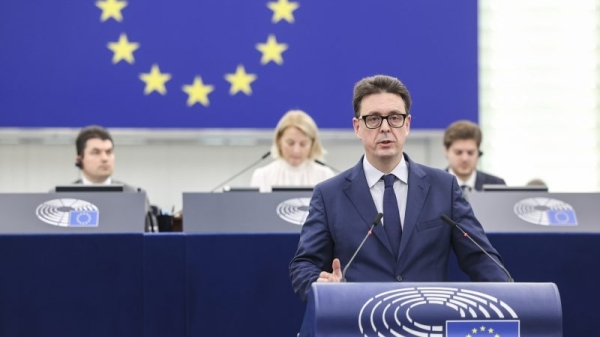Italian MEP warns of EU Buildings Directive ‘anti-EU propaganda’

The EU directive on the energy efficiency of buildings has triggered strong reactions in Italy, but the legislative process is still ongoing, and the text may be amended, MEP Nicola Danti told EURACTIV Italy in an interview, adding that anti-EU propaganda over the case must be addressed with the facts.
The EU directive is expected to be adopted before summer as it will be debated at the plenary in Marchand the trilogue between the European Parliament, the Commission, and the Council, will start.
It aims to make all EU buildings climate neutral by 2050. The EU building sector is a significant challenge for climate action, responsible for more than a third of CO2 emissions today.
Yet, Italians fear that the directive would penalise them should they fail to comply, despite the fact that the directive’s provision that states, rather than individuals, would be penalised.
“This is one of the falsehoods spread by anti-European propaganda. No sanctions are envisaged for owners. Another issue, as with any directive, is the question of a possible infringement procedure if a member country does not reach the set targets in the set time”, Danti told EURACTIV Italy.

Green homes directive would have ‘devastating effects in Italy’
The European Commission’s proposal on the energy efficiency of buildings in exchange for more funds to support renovations would have devastating effects in Italy, said the President of Confedelizia Giorgio Spaziani Testa who called on politicians to defend the savings of Italian families.
According to Identity and Democracy (ID) and the Conservatives and Reformists (ECR) chaired by Prime Minister Giorgia Meloni, the timetable set by the directive makes the energy upgrading of buildings unfeasible, and the resources provided insufficient.
Danti disagrees but believes there are key points to clarify and work on.
“What is missing to date is an assessment of the impact of these exemptions, the possibility of providing for a possible revision of the targets based on ongoing assessments, and there are some specific points to review such as the bans on gas boilers,” he explained to EURACTIV Italy.
However, he believes there is enough time to work on the text and improve it without the need for alarm.
“We need seriousness; throwing it into the mix just to feed anti-European propaganda will get us nowhere […] A great country like Italy must have the courage to give itself important goals”, he said, stressing that improving the energy performance of buildings will also mean bill savings for citizens.
On the issue of funds, according to the directive, member states will have to ensure adequate financial support and appropriate social safeguards. It will be the responsibility of the state to prepare a national plan for restructuring.
Danti suggests an ad hoc fund that would make available the necessary resources to achieve the set targets.
In contrast, according to energy expert Michele Bina, the funds would be “more than enough” to decarbonise the rest of the EU’s electricity sector, which today walks on coal or gas, and achieve virtually all of the EU’s FIT for 55 targets in 2030.
“With €600 billion, about 800-1,000 GW of zero-emission power generation capacity can be installed,” Bina told EURACTIV Italia.
“Let’s always remember that, depending on prices, the EU spends about €1-1.5 trillion annually to import fossil fuels,” he added.
This “fanaticism” about building energy efficiency, according to Bina, is the result of a lack of serious cost-benefit analysis and lobbying by fossil fuel companies, which can thus continue their activities undisturbed.
European Affairs Minister Raffaele Fitto (Fdi/Ecr) said that “Italy cannot deal with the issue of energy efficiency in buildings like other countries” because of a “peculiarity” that the government has pledged to defend: having a real estate heritage that is different because of its architectural, historical and cultural value.
In the agreement reached by the European People’s Party (Forza Italia), Socialists and Democrats (PD), Renew (Iv/Action), Greens and the Left, the framework of exceptions from previous versions was confirmed. Among them, member countries can decide to exclude protected buildings of special historical and architectural value and places of worship from the directive.
“This is an exception that we strongly wanted precisely because, otherwise, we would have risked a strong penalisation of some states, especially Italy, which has a huge heritage of this kind”, Danti explained.
“Indeed, I would like to specify that another of the results we have obtained is the fact that buildings that do not yet have the status of historic or artistic interest, but which applied before the directive came into force, will still be able to enjoy the exemption once the status is recognised”, he added.
There is unanimous consensus on the point, and Danti says Renew is ready to work with everyone putting aside party ideologies. However, he condemns the populist propaganda being spewed by the right.
“Wall-to-wall and demagogy do not serve to bring home results; on the contrary, it risks hurting our country. I understand that Meloni has to hide her own difficulties and weaknesses, but if she chooses to chase the populist sovereignist sirens, she is not doing Italy’s interest”, he concluded.
(Federica Pascale | EURACTIV.it)



